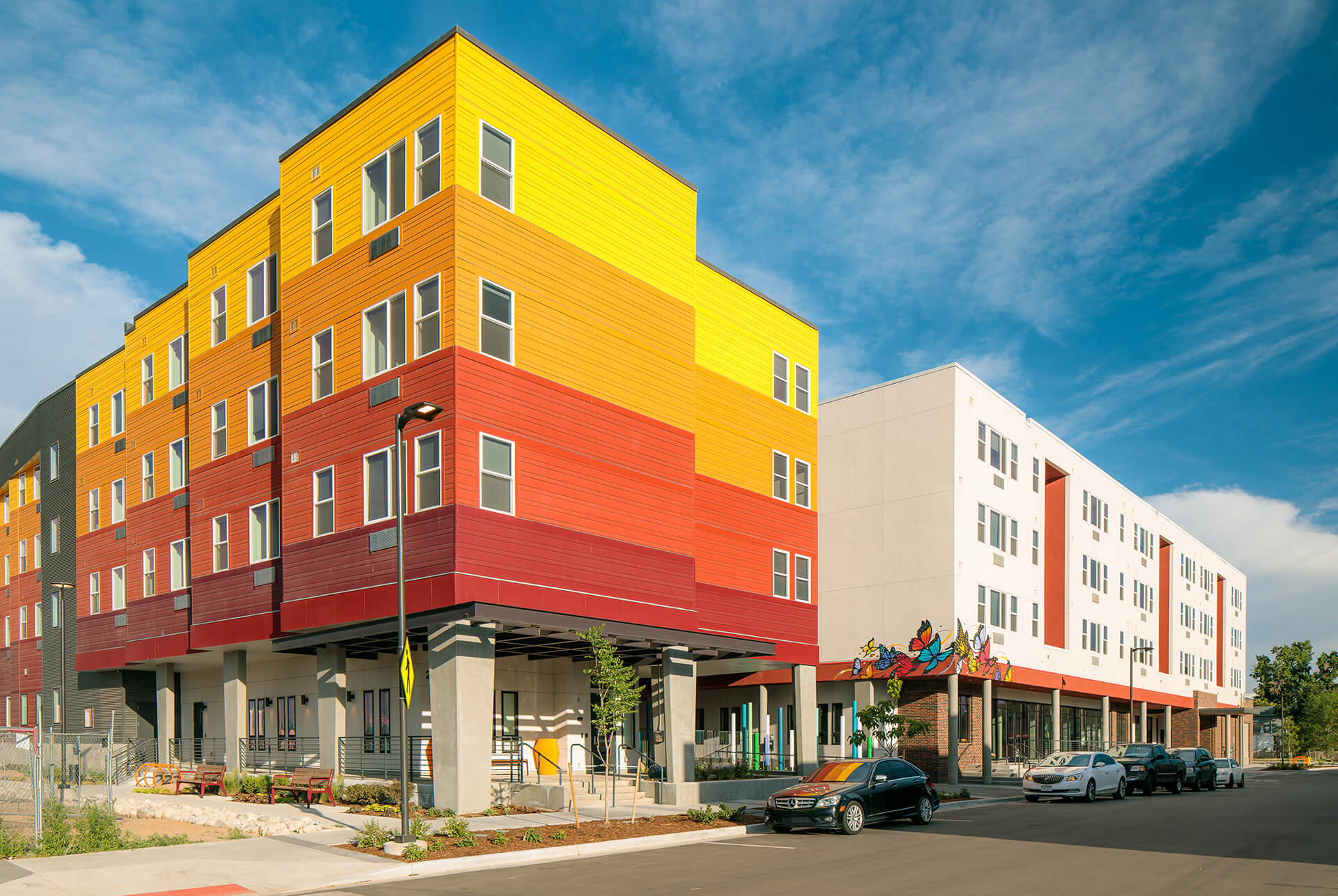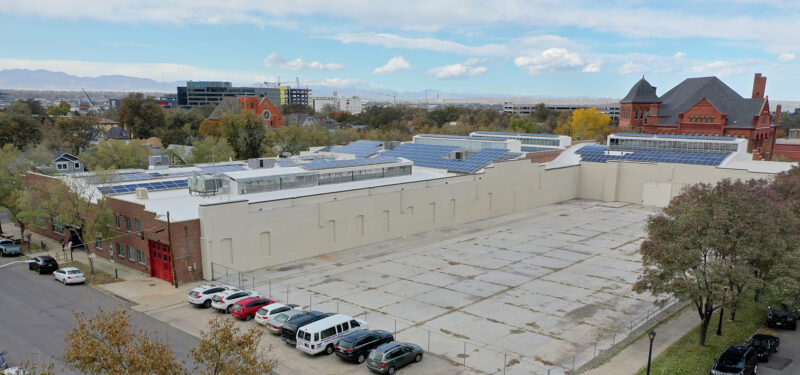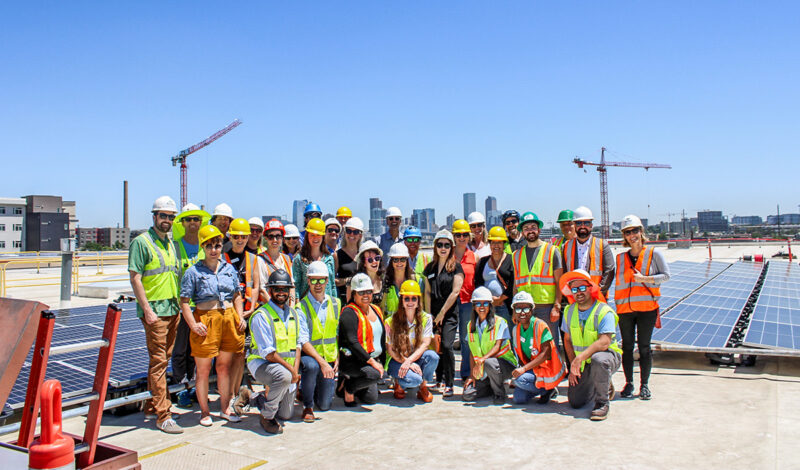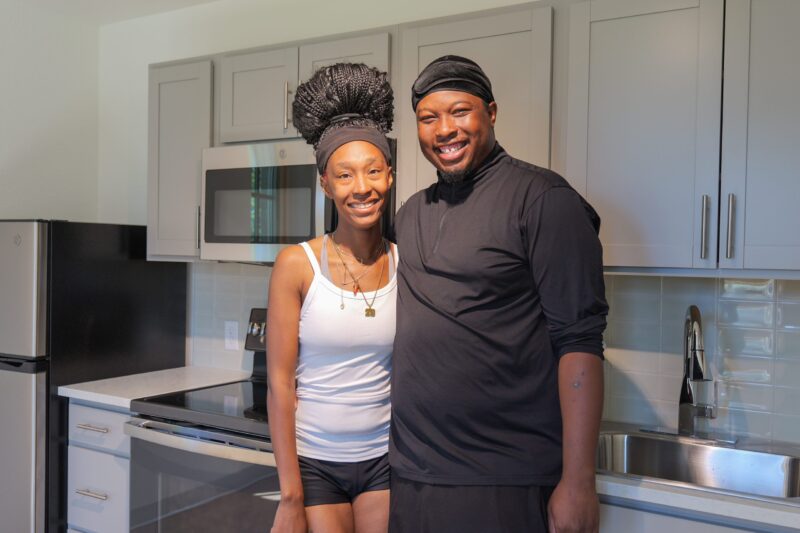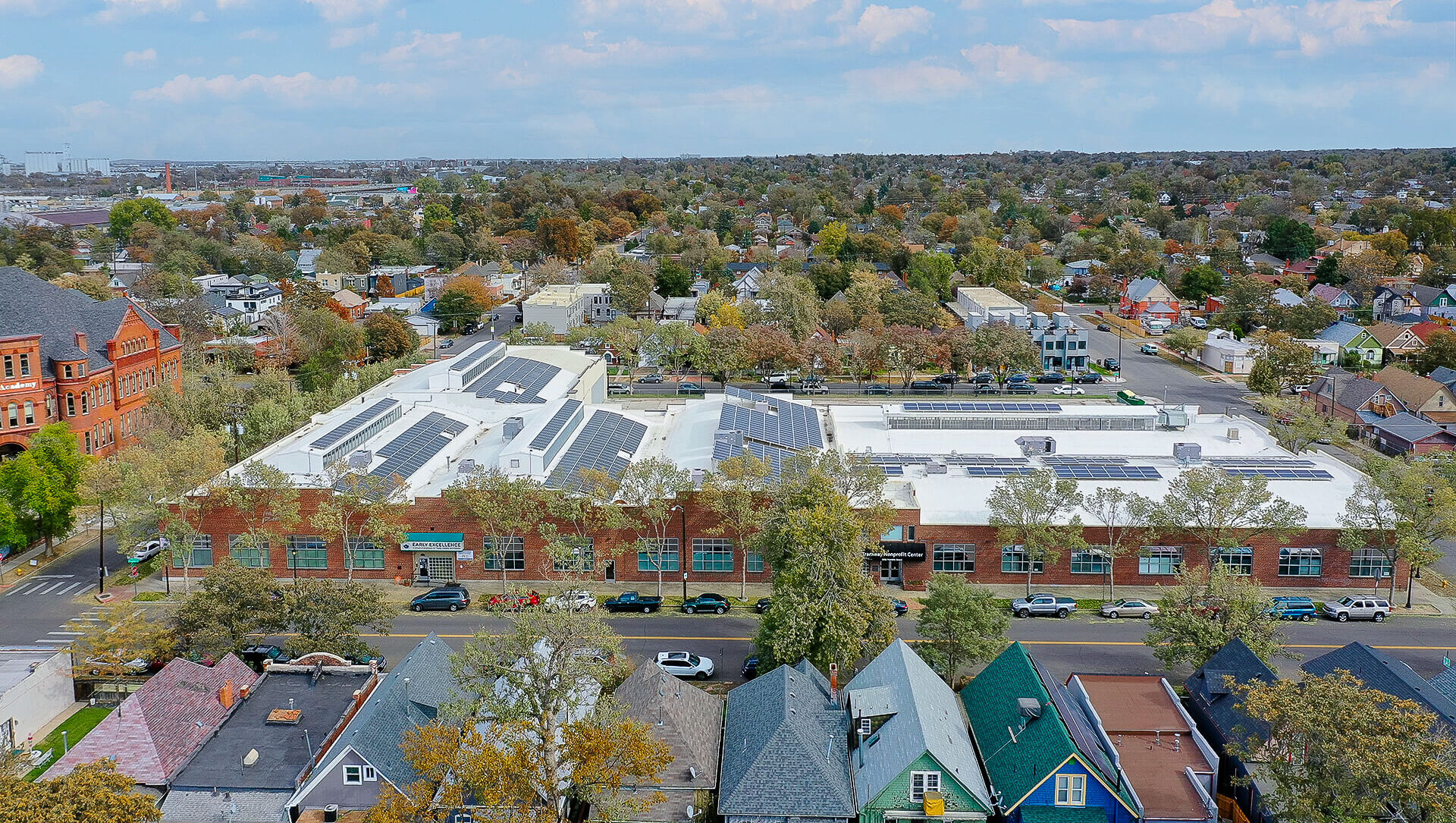
The Tramway Building at 35th and Gilpin has stood as a silent witness to Denver’s evolution for over a century. Once a bustling service station for Denver’s streetcars, it now serves as a different kind of hub—one that drives hope, equity, and opportunity.
Nestled in the heart of the Cole neighborhood, the large, brick structure was repurposed by entrepreneur and philanthropist Chuck Phillips in 1994 into a home base for local nonprofits. Owned and operated by ULC since 2007, today, it houses more than a dozen nonprofits that dedicate themselves daily to community reinvestment through diverse programs and services.
Sunshine Home Share
From Sunshine Home Share’s offices within Tramway, Alison Joucovsky and her team challenge a system that often forgets those on the margins – fueled by the unshakable belief that everyone deserves a home.
Joucovsky, executive director of Sunshine Home Share, understands this deeply. This Tramway-based nonprofit provides economic stability and support to older adults by matching them with younger members of the community, creating an affordable shared living experience where they can age in place.
“We need this in the Denver metro area because [older] people are losing their houses,” Joucovsky said. “Also, combined with rising housing costs, there’s a loneliness and the isolation they face as they grow older.”
At the same time, younger individuals are challenged to find safe, affordable places to live. Sunshine Home Share bridges that gap.
“People 55 and older have empty space in their homes,” Joucovsky said. “We are helping them to be able to use that space as a way to earn income, build community with younger adults, and create affordable housing.”
Vive Wellness
Down the hall, Yoli Casas, executive director of Vive Wellness, refuses to accept a world where health is a privilege reserved for affluent neighborhoods.
Step inside the Vive Wellness space, and you can feel the energy. You hear children laughing, parents exhaling, and people moving.
“The building is in a neighborhood that needs a lot of opportunities,” Casas said of Tramway. “Communities should be served where they live, especially if transportation is an issue. Many of our families are from the area, and the kids often walk here to do our programming.”
Vive offers fitness classes that are accessible to youth from all walks of life, judgment-free mental health services, and nutritional education that meets people where they are. It is work that takes patience, persistence, and a refusal to accept “good enough” because for Casas and her team, nothing less than thriving will do.
Early Excellence Program of Denver
There’s no greater investment in the future than investing in children—and Esmeralda Holguin, director of student and family affairs at the Early Excellence Program (EEP) of Denver, sees that investment come to life every day.
Located within the Tramway Nonprofit Center, EEP benefits from being part of a larger mission-driven community.
“Being based out of the Tramway Nonprofit Center is a huge advantage,” said Holguin. “It’s a collaborative space where we can work with other organizations, share resources, and just meet the needs of the community.”
According to Holguin, EEP—a bilingual, woman- and minority-led preschool program—serves 80 children ages 2½ to 5 in a “nurturing, inclusive” environment.
Since 2002, EEP’s “Colorado Shines Level 5-rated” program has supported families with high-quality early education, year-round care, and before—and after-school programming “to help every child thrive,” Holguin added.
Affordable Space for Nonprofits
The Tramway Building provides the roots for all of it. It is an example of what intentional, community-driven development can accomplish, based on the belief that neighborhoods like Cole deserve access to the same resources and opportunities as any other.
Affordable space for nonprofits is not merely an amenity but a necessity. It provides foundational support for Joucovsky, Casas, Holguin, and 10 other nonprofits within Tramway.
Through leases with ULC, about 50 nonprofits in the metro area – including those at Tramway – pay an average of 30% below-market lease rates for their office, classroom, clinic, and fitness spaces.
“As rising real estate costs displace families and nonprofits from their longtime communities, ULC seeks to keep them in place through affordable housing and affordable office spaces around the metro area,” said Aaron Martinez, ULC’s chief operating officer. “The Tramway Nonprofit Center is a prime example of ULC’s mission in action, providing a stable, affordable hub for impactful nonprofit organizations.”
In a city where rising costs threaten to uproot long-standing communities, the Tramway Nonprofit Center offers something increasingly rare—stability. For the families who rely on its services and the nonprofits working to meet their needs, it’s a place to stay, to serve, and to belong.
Learn more about the Tramway Nonprofit Center and its nonprofits at urbanlandc.org/leasing/tramway-nonprofit-center.
